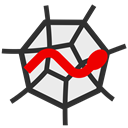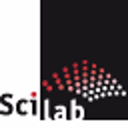Unlocking New Possibilities: The Best SciPy & Numpy Alternatives for Scientific Computing
SciPy (pronounced "Sigh Pie") is a cornerstone of scientific computing in Python, providing powerful tools for mathematics, science, and engineering. It heavily relies on NumPy for its efficient N-dimensional array manipulation, making the two a formidable duo for data analysis and scientific programming. However, depending on specific project needs, platform requirements, or preferred programming paradigms, exploring SciPy & Numpy alternatives can open up new efficiencies and functionalities. This article delves into top alternatives that offer unique strengths for various computational tasks.
Top SciPy & Numpy Alternatives
While SciPy and NumPy are incredibly versatile, the world of scientific computing is rich with other powerful tools. Whether you're seeking a different programming language, a more integrated environment, or specialized features, these alternatives provide compelling options for your analytical and computational needs.

MATLAB
MATLAB is an enterprise-class computing environment and programming language renowned for numerical computation. As a commercial platform available on Mac, Windows, Linux, Web, Android, iPhone, and iPad, it offers a comprehensive suite of features including Simulink, batch plotting, and an embedded debugger, making it a robust alternative to SciPy & Numpy for complex engineering and scientific tasks, especially where an integrated, commercial solution is preferred.

R (programming language)
R is a free and open-source software environment specifically designed for statistical computing and graphics. Available on Mac, Windows, Linux, and BSD, it's a GNU project similar to the S language. R excels in statistical analysis and data visualization, offering features like automatic data loading and data mining, making it an excellent SciPy & Numpy alternative for users primarily focused on advanced statistical modeling and graphical representation.

Sage
Sage is a free, open-source mathematics software system licensed under the GPL. It skillfully integrates the power of numerous existing open-source packages into a cohesive Python-based environment. Available on Mac, Windows, Linux, and Web, Sage offers symbolic computation capabilities, providing a comprehensive alternative to SciPy & Numpy for users requiring a broader range of mathematical functionalities beyond numerical processing.

Anaconda
Anaconda is a completely free, enterprise-ready Python distribution tailored for large-scale data processing, predictive analytics, and scientific computing. It includes over 100 of the most popular scientific Python packages, making it a direct and highly convenient SciPy & Numpy alternative for setting up a full-fledged data science environment on Mac, Windows, and Linux. Its inclusion of PowerShell Scripting and Python support streamlines workflow for data professionals.

Scilab
Scilab is a free and open-source scientific software package for numerical computations. It provides a powerful open computing environment for engineering and scientific applications, available on Mac, Windows, and Linux. While it may not list specific features beyond its core numerical capabilities, its focus on scientific computation makes it a viable, standalone alternative for those seeking an open-source solution comparable to SciPy & Numpy's numerical strengths.

Spyder
Spyder (formerly Pydee) is a free and open-source Python development environment that offers MATLAB-like features within a simple and lightweight software package. Available on Mac, Windows, and Linux, it provides a comprehensive Python IDE, making it an excellent alternative or complementary tool for users of SciPy & Numpy who appreciate an integrated development experience with robust debugging and analysis tools.

Julia
Julia is a high-level, high-performance dynamic programming language specifically designed for technical computing. With syntax familiar to users of other technical computing languages, Julia is free, open-source, and available on Mac, Windows, and Linux. Its features like automatic JIT compilation, parallel computing, and its nature as a compiled language make it a compelling SciPy & Numpy alternative for those seeking superior performance in computationally intensive tasks.

wxMaxima
wxMaxima is a document-based interface for the powerful computer algebra system Maxima. Utilizing wxWidgets, it runs natively on Windows, X11, and Mac OS X. As a free and open-source tool, wxMaxima provides robust algebra capabilities, making it a strong SciPy & Numpy alternative for users who require symbolic computation and algebraic manipulation in addition to numerical analysis.

Xcos
Xcos is a graphical editor for designing hybrid dynamical systems models. Models can be designed, loaded, saved, compiled, and simulated, with features like Palettes Browser. As a free and open-source component of Scilab, available on Mac, Windows, and Linux, Xcos offers a specialized simulation environment that can serve as an alternative or complementary tool to SciPy & Numpy for system modeling and simulation rather than purely numerical computation.

fxSolver
fxSolver is an online math solver, equation editor, database, graphing calculator, and science/engineering problem helper. It is a free, web-based platform with features like a formula builder, equation solving, built-in editor, calculators, graphs, and a library. For users seeking a convenient, web-accessible tool for mathematical calculations, equation solving, and quick engineering computations, fxSolver presents a practical alternative to the more programming-centric SciPy & Numpy.
The choice of a SciPy & Numpy alternative largely depends on your specific computational tasks, preferred programming environment, and desired level of integration. From specialized statistical languages like R to comprehensive commercial platforms like MATLAB, and performance-driven languages like Julia, a wide array of tools can meet the diverse needs of scientific computing. We encourage you to explore these options and select the best fit for your unique projects.